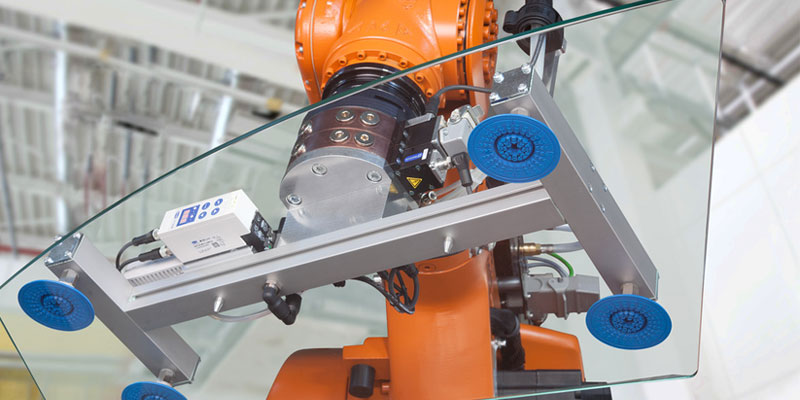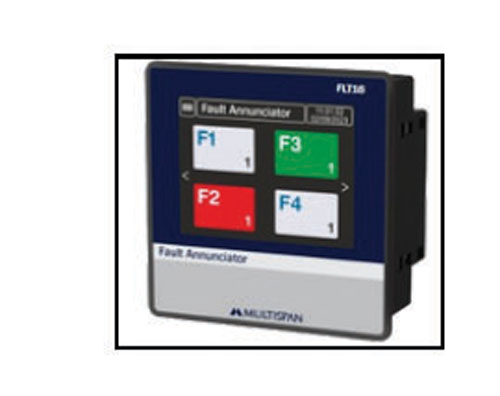Schedule a Call Back
Manufacturing in India: High growth potential
 Technical Articles
Technical Articles- Jan 01,17

As the various policy initiatives and incentives in the wake of Make in India initiative kick in, manufacturing in India is displaying a high growth potential.
As 2016 drew to a close, US MNC conglomerate GE announced the opening of its largest Digital Hub located in Bengaluru. Already employing 1,500 highly skilled IT and software professionals, GE Digital’s Hub in India will create an additional 1,000 technology positions and deliver world-class solutions for the Industrial Internet of Things (IIoT) for GE’s customers, making it easier for industrial companies to execute a strategic digital transformation to drive internal productivity. In early 2015 the company had inaugurated a multi-modal manufacturing facility at Chakan, Pune to manufacture a range of diversified products for sectors like energy, aviation, oil and gas transportation.
The Bosch Group is also strengthening its presence in the Indian market, one in which the German conglomerate has had a long presence. In 2016, the group invested more than 100 million euros (Rs 1,170 crore) in its Indian manufacturing and development locations. Today, Bosch’s development activities in India are the most comprehensive outside Germany. Bosch engineers in India develop solutions in a number of areas, including driver assistance and security systems, data mining, and software solutions for the Internet of Things (IoT). With a total of over 30,000 associates in India, Bosch is one of the country’s largest employers.
When Prime Minister Narendra Modi launched the Make in India campaign in September 2014, the country was in the midst of an economic slowdown which was exacerbated by the ‘policy paralysis’ that had gripped the last two years of the previous government. Globally, the success of the developed countries has been powered by growth led by the manufacturing sector which contributed between 25 to 30 per cent to their national income. In contrast, in India, the contribution of the manufacturing sector to the GDP is just about 16 per cent. The Make in India initiative is aimed at increasing this share to 25%, by basically encouraging multi-national, as well as national companies to manufacture their products in India. During the last few years, even Indian companies found it easier to have their products manufactured in other Asian countries including China.
The other major objective behind the Make in India initiative is job creation and skill enhancement. The government has identified 25 sectors of the economy for this (these are listed on the MakeinIndia portal). To this list the Capital Goods sector, often called the ‘mother of all manufacturing industry’, has been added recently. The initiative also aims at high quality standards and minimising the impact on the environment. The initiative hopes to attract capital and technological investment in India. Since ‘Ease of Doing Business’ or to be precise, the low ranking of the country on this index is a major hindrance, this initiative has also led to a slew of policy changes and proactive measures to attract investments. Among these are applications for licenses made available online and the validity of licenses increased to three years. Various other norms and procedures were also relaxed. Also in August 2014, the union cabinet allowed 49% foreign direct investment (FDI) in the defence sector and 100% in railways infrastructure. The defence sector previously allowed 26% FDI and FDI was not allowed in railways. This was in hope of bringing down the military imports of India. Earlier, one Indian company would have held the 51% stake; this was changed so that multiple companies could hold the 51%.
The results were fast and quick. In 2015, India received US $63 billion in FDI and the country emerged as the top destination globally for foreign direct investment, surpassing the United States of America as well as the People’s Republic of China. But the fact remains that these investments have largely come on the basis of policy changes and incentives, while the infrastructure – in terms of roads, railways, ports and electricity – which is the key factor in such decisions, remains far from satisfactory. China, which is a favourite comparison for Indian policy makers first scaled up its infrastructure with massive state intervention before global companies decided to manufacture in that country, the demand fuelled but the huge internal market as well as the low cost of manufacturing which made exports to the home countries very attractive.
With the help of Make in India drive, India is on the path of becoming the hub for hi-tech manufacturing as global giants such as GE, Siemens, HTC, Toshiba, Bosch Group, and Boeing have either set up or are in process of setting up manufacturing plants in India, attracted by India’s market of more than a billion consumers and increasing purchasing power.
Perhaps the most significant impact has been felt in the electronics sector where exports have outpaced total production. Cumulative FDI inflows into the electronics sector, including computer hardware and software, increased at a CAGR of 13.56 per cent, with the value increasing from US$ 9.8 billion in FY10 to US$ 21.02 billion in FY16, on the back of enabling policies of the government and the Make in India initiative. The Indian electronics sector has six main product segments: consumer electronics, industrial electronics, computers, communication and broadcasting equipment, strategic electronics and electronic components. By 2020, the electronics market in India is expected to increase with a CAGR of 41.4 per cent to US$ 400 bn from US$ 100 bn in 2016. With the demand for electronic hardware expected to rise rapidly to US$400 billion by 2020, India has the potential to become an electronic manufacturing hub. The government is targeting to achieve net zero imports of electronics by 2020 by creating a level playing field and providing an enabling environment.
In September 2016, India jumped 16 places to the 39th rank in from last year’s 55th position in the Global Competitiveness Index, highest jump of any country for this year. In 2014 India was in 71st position as per GCI 2014. India has thus jumped 32 positions in two years.
Among the recent projects in the wake of the Make in India initiative are:
Schneider Electric is preparing to make India its export hub on the back of government’s policies such as Make in India, Digital India and Smart City Mission. Schneider Electric has 28 factories, R&D centres and further plans to invest around US$ 110 million in the coming five years and will keep investing in skill development.
Perkins has opened a world-class engine facility at Aurangabad, investing more than US $150 million for the state-of-the-art engine manufacturing plant which is also strategically located within the Delhi-Mumbai industrial corridor. End-to-end machining, engine assembly, test and finish – every step of which follows rigorous manufacturing processes, are undertaken on site, by more than 500 highly trained employees.
Bonfiglioli Transmissions Pvt Ltd, the India-based subsidiary of Bonfiglioli Riduttori S.p.A of Italy has announced an expansion of operations in India that includes improvements to existing facilities in Chennai and construction of a new facility in Pune (Chakan area), for a total investment of INR 85 crore (11.3 million euro).
ZF Friedrichshafen AG has announced signing of a Letter of Intent (LoI) with the government of Telangana to set-up ?new Technical Centre in Hyderabad – the first of its kind for the ZF Group in India. The new Technology Centre will be dedicated to electronics embedded software and mechanical engineering. The centre will support ZF’s global development teams while enabling the company to accelerate local product development supporting ZF automotive and non-automotive operations and customers in India.
Schindler India, the 100%-owned subsidiary of Schindler Group, a leading global provider of elevators, escalators and related services, opened a new state-of-the-art Technical Training Centre in Pune. The new training centre, Schindler’s fourth in India, is equipped with three elevator shafts and electronic control simulators, ensuring that Schindler engineers and service technicians are fully trained and certified.
ABB India, the power and automation technology major, inaugurated a new solar inverter manufacturing facility in the city. The facility is set to double the solar inverter manufacturing capacity of the company. The expansion follows earlier milestones achieved by ABB India last year – the first company to double the solar inverter installed base to 2GW in a span of five months. A first for the nation as well. ABB inverters manufactured at Nelamanagala, Bengaluru help power 40% of the utility scale solar power generated in the country.
KabelSchlepp India (KSI) has completed 10 years of operations in the country. The company sells cable carriers and guide way protection systems for the last 10 years and has been growing steadily by stamping its name in the Indian market. Thus far, most of the components were imported from the principal company Tsubaki KabelSchlepp GmbH, Germany and assembled and sold from Bengaluru. The company has now started manufacturing telescopic covers in India from January 2015, the quality has been excellent and the demand has been increasing.
Related Stories

Air-Saving Vacuum Ejectors Cut Energy Use by Up to 90% in Automotive Plants
Air-saving vacuum ejectors are helping Indian automotive manufacturers reduce energy costs, cut carbon emissions and achieve rapid ROI while ensuring reliable, zero-defect production, shares Rajesh ..
Read more
India is at a pivotal ‘Make in India’ inflection point: Manoj Patil
In this interview, Manoj Patil, Promoter and Managing Director, Patil Automation Limited, outlines its growth journey, capacity expansion, acquisitions, design-led approach, market challenges, and t..
Read more
Taypro aims to be a performance-driven automation provider: Yogesh Kudale
Yogesh Kudale, Co-Founder & CEO, Taypro explains how AI-led, waterless robotic cleaning is improving solar plant performance ratios, reducing soiling losses, and reshaping O&M economics across utili..
Read moreRelated Products

Indexing Socketing Machine
Eskay Engineers offers a wide range of
indexing socketing machine model (110-180 & 63-180).

Refrigerated Air Dryer for Compressor
Esar Engineerig offers refrigerated air dryer for compressor.

Fault Annunciator
Insys Electrical & Controls offers a wide range of fault annunciator.













